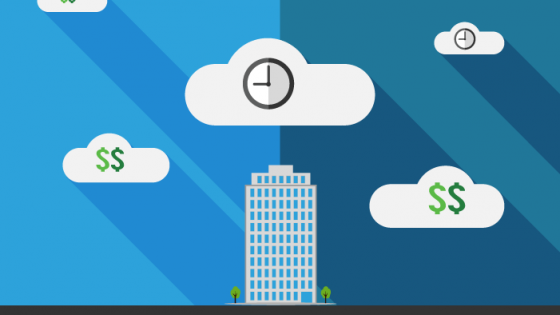
Modern accounting is evolving quickly, directly correlated to the
increased demands that accounting firms are now responding to …
Today, practice clients not only desire more and better but they are also open to trying new modalities of working – using Skype, virtual CFOs, daily reports and rolling forecasts, for instance. Concurrently, accounting firm costs are rising and often partner profits are down. For these reasons, firms that depend on compliance work and paying significantly for desktop software are particularly succumbing to competition from more agile competitors.
See also: Cloud Accounting or Traditional Accounting?
Cloud Accounting Technology Factors
The biggest factors contributing to the rapid increase in cloud accounting technology include the possibility to cut practice overheads like travel and data input costs, as well as improved service and increased client satisfaction.
For clients, cloud accounting technology improves financial oversight by enabling firms to stay up-to-date with invoicing cycles. This in turn positively impacts the intrinsic relationship between business and their accountants as they are likely to receive better more strategic tax and financial advice.
From a CPA’s point of view, when a client moves to cloud accounting technology it becomes simpler to increase their service levels and provide more timely advice – without needing to increase the hours spent traveling to serve clients.
This is particularly relevant for firms that serve small businesses that struggle to ensure that they are paid on time and typically lack the necessary time needed to manage their cash flow.
Crucial for firms, when data is stored in the cloud and can be accessed at any time provides increased flexibility to offer newer value-added services that were otherwise too costly to deliver. As such, accounting firms benefit potentially new profit streams, while the client enjoys greater access to financial support.
Other important benefits include cloud accounting technology’s capability to empower firms to be more efficient, as well as allowing them to update their service offerings, improving overall income.
Therefore, remaining with locally installed desktop software and back room servers, firms that have yet to embrace cloud accounting technologies now risk being left behind, especially those who are “waiting to see” if cloud accounting technology really takes off before making the leap.
Not only are they losing out on the flexibility, efficiency, agility and other key strengths that cloud accounting technology has to offer, they will likely also see their fees and client base being eroded by newer tech firms that offer increased responsiveness and delivering improved strategic and timelier advice.
———
 Cloud9 makes moving to cloud accounting technology easy. We garnered more industry awards in 2012-14 than all other SMB cloud service providers combined, including the Sleeter Awesome App, the K2 Quality Technology Award, the CPA Practice Advisor’s 2012 and 2013 Reader’s Choice Award, and the 2012-13 UP Award as one of the Best Cloud Hosting companies, to name a few.
Cloud9 makes moving to cloud accounting technology easy. We garnered more industry awards in 2012-14 than all other SMB cloud service providers combined, including the Sleeter Awesome App, the K2 Quality Technology Award, the CPA Practice Advisor’s 2012 and 2013 Reader’s Choice Award, and the 2012-13 UP Award as one of the Best Cloud Hosting companies, to name a few.






